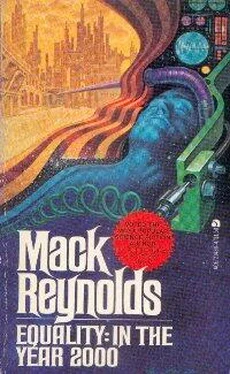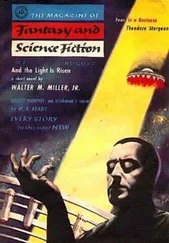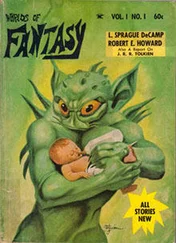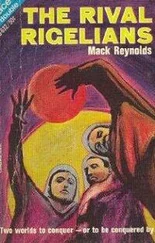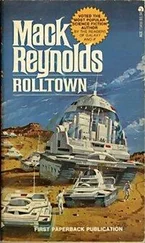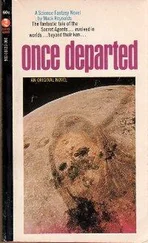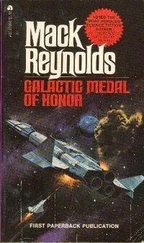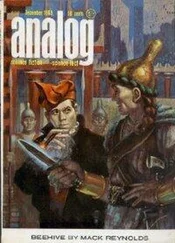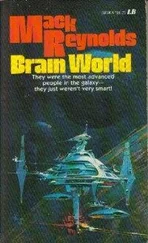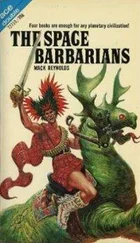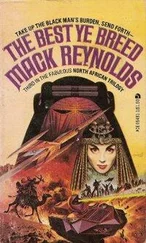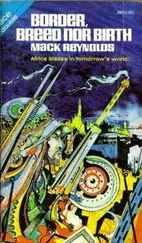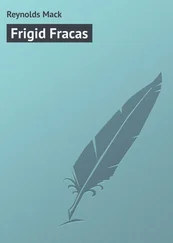Mack Reynolds - Equality - In the Year 2000
Здесь есть возможность читать онлайн «Mack Reynolds - Equality - In the Year 2000» весь текст электронной книги совершенно бесплатно (целиком полную версию без сокращений). В некоторых случаях можно слушать аудио, скачать через торрент в формате fb2 и присутствует краткое содержание. Год выпуска: 1977, ISBN: 1977, Издательство: Ace Books, Жанр: Фантастика и фэнтези, на английском языке. Описание произведения, (предисловие) а так же отзывы посетителей доступны на портале библиотеки ЛибКат.
- Название:Equality: In the Year 2000
- Автор:
- Издательство:Ace Books
- Жанр:
- Год:1977
- ISBN:0-441-21430-4
- Рейтинг книги:3 / 5. Голосов: 1
-
Избранное:Добавить в избранное
- Отзывы:
-
Ваша оценка:
- 60
- 1
- 2
- 3
- 4
- 5
Equality: In the Year 2000: краткое содержание, описание и аннотация
Предлагаем к чтению аннотацию, описание, краткое содержание или предисловие (зависит от того, что написал сам автор книги «Equality: In the Year 2000»). Если вы не нашли необходимую информацию о книге — напишите в комментариях, мы постараемся отыскать её.
Equality: In the Year 2000 — читать онлайн бесплатно полную книгу (весь текст) целиком
Ниже представлен текст книги, разбитый по страницам. Система сохранения места последней прочитанной страницы, позволяет с удобством читать онлайн бесплатно книгу «Equality: In the Year 2000», без необходимости каждый раз заново искать на чём Вы остановились. Поставьте закладку, и сможете в любой момент перейти на страницу, на которой закончили чтение.
Интервал:
Закладка:
She made a small curtsey. “I’ve finished my stint, you malingerers. And what’s more, I’m tired of sitting before those console screens. How about a walk, Jule?”
“Nothing would suit me more. Besides, there’s something I wanted to talk to you about.” Julian turned to her father. “When you tell Mrs. Leete, be sure it’s either in the bath, with the shower turned on, or somewhere out in the open.”
“Very well, Julian.”
He said, “There’s something else I wanted to ask you about… Oh, yes. Why didn’t you inform Security about the two attacks?”
“Because I suspected the attempts were made so that I would complain, so that it would get into the news and focus attention on the rival group which, thus far, has had precious little attention paid to it. They want as much publicity as they can get. Why should I help them?”
“That kind of publicity?”
“They want to play themselves up as rough and tough, a return to the old type of society where men were ruthless and fought their way to the top, rather than being selected by cold machines.”
Julian nodded and turned to Edith. “Shall we go?”
She looked from one to the other. “What’s been going on?”
“I’ll tell you as we walk,” he said. “See you later, Raymond.”
Going down in the elevator, Edith, frowning slightly, asked, “What were you discussing with Father?”
He didn’t really expect the elevator compartment to be bugged, but he shook his head. “Tell you later, Edie.”
“It gets mysteriouser and mysteriouser.”
Once out of the building, they crossed over to the park beyond and ambled along one of the gravel paths. Each of the university city’s high-rise apartment buildings were surrounded by approximately a square mile of parks, pools, woods, and small streams, somewhat reminiscent in Julian’s eye of a combination swank golf course and the gardens of the country estate of a British duke. There were quite a few other pedestrians taking advantage of the superlative day, but the area was large enough that it was in no sense crowded.
“Where are we going?” he asked.
She grinned mischievously. “Somewhere you’ll never believe. To the Mythological and Prehistoric Zoo.”
“Sounds something like Disneyland.” When he saw that struck no chord, he said, “It was the largest of the amusement parks in my day. For kids, actually. At least, so they said.”
“This is for young people too, but also for older scholars.”
“When do we get to it?”
“We’re already there. Look,” she pointed.
His eyes popped. At first, he thought the small herd grazing in an attractive glen to be horses, but then he realized that each had a single horn projecting from its forehead and that they seemed more delicate, more gentle than the average horse.
He laughed at himself, at his surprise, and said,
“What a clever job. Attaching those horns so that they look like unicorns.”
She smiled at him. “They are unicorns. Those are real horns.”
“Come off it! The unicorn was a mythical beast.”
“I told you this is the Mythological and Prehistoric Zoo.”
He looked at her, then the unicorns, then back at her.
She laughed at him in such a way that it was obvious that she had expected to laugh at him at this stage. She said, “Come over this way. We’ll see the mammoths.”
“Mammoths! They’ve been extinct for… for a million years!”
“No. Not really. We have cave paintings depicting Cro-Magnon Man hunting them. Mastadons, too. We’re particularly proud of the job we’ve been able to do on the mammoths. Four were found, frozen in the ice, in Siberia, in almost perfect condition. So perfect that the meat was actually edible. At any rate, the specialists in that branch of biology didn’t have to guess and were able to reconstruct them just about perfectly.”
He stopped in his tracks. “What in the name of everything are you talking about?”
“Jule, Jule, come along. Man has been changing animals around since prehistoric times. Look at the dog. Heaven only knows what he originally looked like. But centuries before we had ever heard of genet-ical engineering, we had bred the dog from the size of a Pekingese to a Great Dane and back again. They’re the same species, of course. You can cross a Peke and a Great Dane.”
“What’s that got to do with a mammoth? This I’ve got to see!”
“Let’s go, then. They’re over here. In actuality, there isn’t much to see. They look like elephants with hair and overgrown tusks.”
“You just let them run around?”
She laughed. “They’re not carnivorous, you know. Now, the saber-toothed tiger is another thing. So is our tyrannosaurus. You’ll be amazed at the size of the pit and cage we’ve had to put him in. The brontosaurus is something else again. Herbivorous, of course, so we have him in a duplication of the environment he must have lived in, sort of a swamp. They had to guess a lot about the dinosaurs; all we have are skeletons to work with. The same with the dragons. The biologists made them herbivorous too, just to make them easier to handle.”
“Dragons! I suppose they breathe fire?” Julian added sarcastically after his initial reaction. “Who are you trying to kid, Edie?”
She had to laugh at that. “Well, no, they don’t breathe fire, much to the disappointment of some of the children. The Pegasus also has the scientists stumped. You simply can’t get enough wingspread on an animal as big as a horse to enable it to fly. There—over there are your mammoths.”
Julian gaped. There were six of them, and Edith had been right. They were about the size of Indian Elephants, had long tusks possibly ten feet in length which curved in a unique spiral, and were covered with yellowish brown woolly hair which reached almost to the ground. They seemed docile enough.
Julian shook his head and turned his stare to her. “All right, at least brief me. Are these things living, or are they just clever robots, like they had in that Disneyland I mentioned?”
“No, they’re living. We’ve come a long way since that immunochemist Oswald Avery came up with deoxyribose nucleic acid, or DNA, and the scientists of your period created life in the laboratory.”
“Nobody had created life in the laboratory in my day. Not to speak of dragons.”
“Oh,” she said, frowning. “My memory was that in 1965 a team at the University of Illinois, under a Professor Sol Spiegelman, succeeded in putting together the non-living nucleic-acid message which produced a virus which would go on and multiply indefinitely. Their artificial virus was completely indistinguishable from a natural virus. Of course, it’s a matter of whether or not you consider a virus alive. At any rate, progress was geometric in the field from then on.”
He said weakly, “Let’s sit down on this bench for awhile. I could use a little breather before being taken to see a Tyrannosaurus. Are you telling me that your modern biologists can create, in the laboratory, just about any type of life form you want?”
“Why, yes. For over ten years now.”
“Even a man?”
“Yes. Though that’s in the way of being a taboo. We tread very carefully in this field, Jule. The scientists are possibly a bit more humble today than they were a third of a century ago. But cloning has become a reality. You see, every cell in the body of any organism carries all the information needed to construct whole organs, or indeed, the body itself. I believe Father told you that we no longer transplant organs. The geneticists simply take a few cells from any part of a sick man and grow duplicates of his defective organs from them. They call it autoplantation. That, of course, is a somewhat different field than the making of new life forms.”
Читать дальшеИнтервал:
Закладка:
Похожие книги на «Equality: In the Year 2000»
Представляем Вашему вниманию похожие книги на «Equality: In the Year 2000» списком для выбора. Мы отобрали схожую по названию и смыслу литературу в надежде предоставить читателям больше вариантов отыскать новые, интересные, ещё непрочитанные произведения.
Обсуждение, отзывы о книге «Equality: In the Year 2000» и просто собственные мнения читателей. Оставьте ваши комментарии, напишите, что Вы думаете о произведении, его смысле или главных героях. Укажите что конкретно понравилось, а что нет, и почему Вы так считаете.
